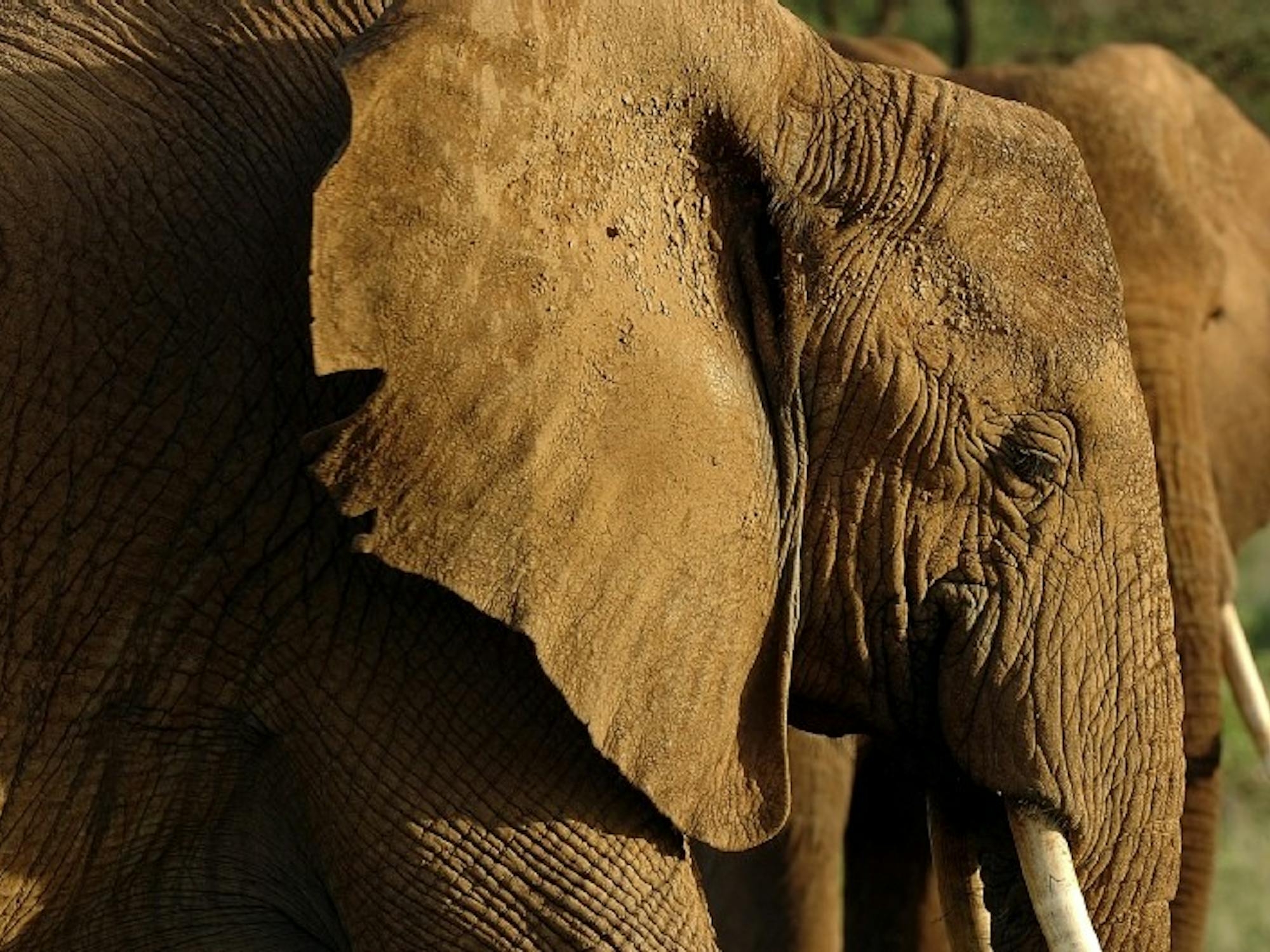Bookmarks, jewelry, piano keys, picture frames—you name it—all fuel elephant poaching and the rush for ivory.
In 2011, an average of 100 elephants per day were killed for ivory, making it the worst year in history for elephant poaching. Ivory is extremely valuable in most countries. It’s worth at least $700 per pound in China, but the mass extinction of elephants is for nothing more than the production of knick-knacks.
According to renowned conservation biologist Sam Wasser, if the
African elephant death toll doesn’t slow soon, they could become extinct in the wild by 2025. Honestly, I don’t want to live in a world without elephants. They embody such rare beauty and have evolved a strikingly advanced consciousness.
In a Vanity Fair article, Alex Shoumatoff wrote about the Maasai people in Africa who revered elephants and regarded them as almost human, and as having human souls.
The old adage “an elephant never forgets” may be true; they appear to build up a memory and hold on to it. A study of wild African elephants has revealed matriarchs build up a social memory as they get older, enabling them to recognize “friendly” faces.
They signal whether an outsider is a friend or foe to the rest of the herd. They also display emotions like sorrow and grief and pay homage to the bones of their deceased, gently touching the skulls and tusks with their trunks and feet, making sobbing sounds and displaying clear empathy for the dead.
While the elephant’s tusk satisfies immediate monetary satisfaction for poachers, with shortsighted thinking comes grave consequence.
The elephant is a keystone species, which is a species with a disproportionately large effect on its environment and a key role in maintaining the balance of all other species in the community.
As their herds move across the savannah, elephants spread seeds and feed on trees, breaking them up, often by pulling them up by the roots and crushing them. Without this tree clearing, the savannah would quickly grow from grassland to woodland, resulting in widespread ecological imbalance.
Elephant poachers are outlaws, and communities in Africa usually react to them with fear. According to the website for Amara Conservation, a group working toward an end to elephant-poaching,
“Poachers must move through communities surrounding national parks, and if those communities are vigilant, they report them to Kenya Wildlife Service or the police in hopes to stop them.”
Amara Conservation claims the only way to stop elephant poaching from happening is to educate the people in communities where poaching may take place about why the elephants are so important, and why they need protection.
Even in desperate circumstances, when any way to make money may seem like fair game, killing one of nature’s most majestic land creatures, is a tragedy.









